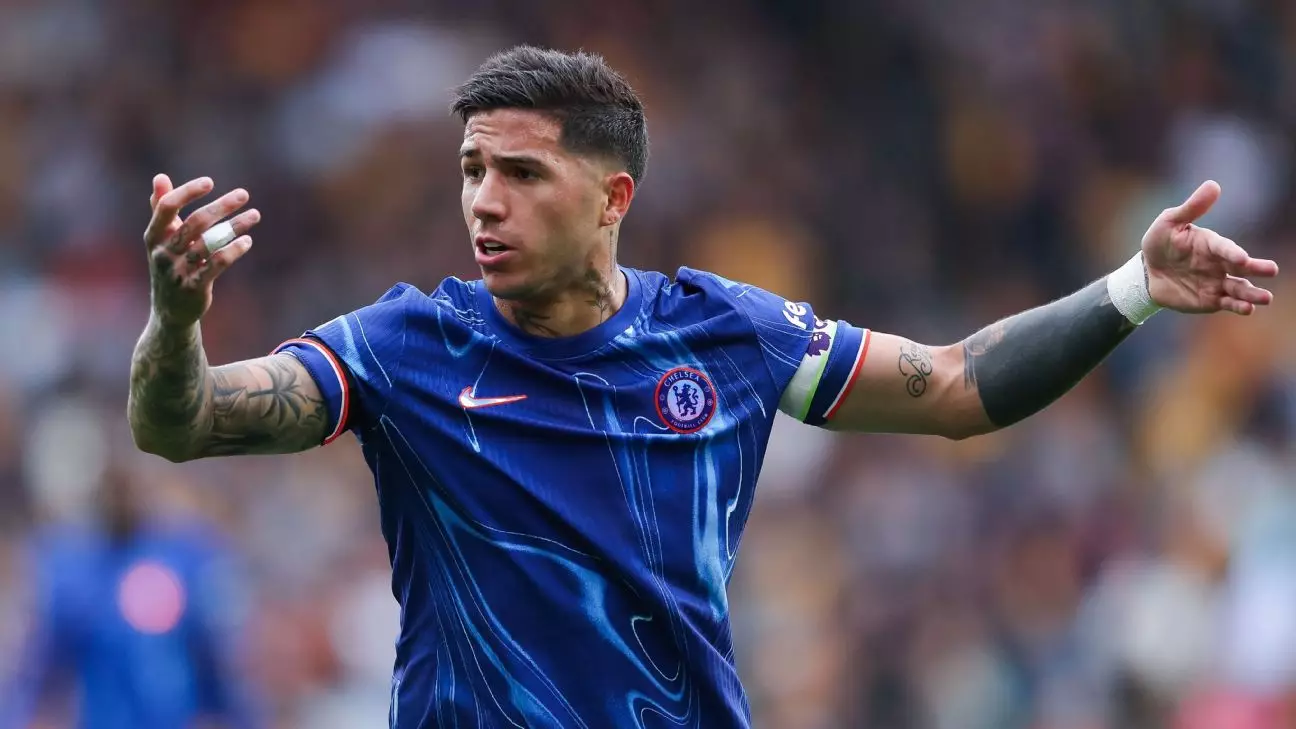The world of professional football often holds a mirror to the societal issues that plague our communities, including the persistent challenges of racism and discrimination. Recent incidents involving two players, Chelsea’s Enzo Fernández and Tottenham’s Rodrigo Bentancur, have brought these issues to the forefront, revealing how inconsistently football governing bodies handle allegations of racist behavior. While Bentancur faces charges from the English Football Association (FA) for comments deemed racist, Fernández has escaped similar scrutiny despite having been filmed engaging in derogatory chanting. This inconsistency raises profound questions about accountability and the implications for both players and the sport.
Rodrigo Bentancur’s case presents a stark example of how the FA’s jurisdiction applies differently based on the context and medium of an offense. Bentancur’s remarks, made during an interview in a personal capacity, included a statement implying that South Koreans “all look the same” when he was asked about a Tottenham shirt belonging to Son Heung-Min. This remark prompted a charge from the FA for allegedly “using abusive and/or insulting words” in relation to Son’s race and nationality. The gravity of the situation is underscored by the potential for a significant domestic ban of up to 12 matches—a serious repercussion in the high-stakes world of football.
In contrast, Enzo Fernández’s situation is marked by a different governing body. His involvement in derogatory chants that targeted the French national team occurred during the Copa América while he was representing Argentina. This incident falls under FIFA’s jurisdiction, and thus the FA has opted not to investigate him. The result is a potential double standard; while Bentancur faces consequences stemming from private remarks, Fernández’s public actions may elude similar accountability. FIFA has expressed that it is examining the incident involving Fernández, yet the lack of immediate action contrasts sharply with the swift response seen in Bentancur’s case.
The disparity in responses not only highlights the inconsistencies in how governing bodies address racist behavior but also suggests a need for a more comprehensive approach to education and accountability in football. Spurs’ manager, Ange Postecoglou, emphasized the importance of understanding among players, suggesting that growth from mistakes should be prioritized over mere punishment. This viewpoint indicates a shift towards fostering an environment of education and learning, rather than solely focusing on punitive measures.
While Bentancur’s initial comments were arguably misguided humor, his subsequent apology and Son’s acceptance reflect a personal understanding that transcends mere disciplinary action. It underscores an essential narrative: players should leverage their platforms for positive change. This sentiment was echoed when Tottenham issued a statement promising “further education for all our players,” emphasizing a collective responsibility to combat racism and promote inclusivity. This approach can serve as a blueprint for football clubs around the world, aiming to nurture understanding and teach players the impact of their words and actions.
The juxtaposition of the Fernández and Bentancur incidents brings significant implications for how football manages issues of racism moving forward. As discussions of accountability, education, and the need for cohesive governance organs resonate throughout the sport, it becomes apparent that the responsibility to combat racism cannot solely reside with individual players. Rather, it must be a concerted effort from football associations, clubs, and governing bodies to ensure that clear, consistent protocols are in place for addressing instances of discrimination.
Moreover, players must continue to recognize the influence they wield. In times when societal tensions are high, showcasing empathy and learning from missteps becomes crucial. The conversations sparked by their actions can lead to broader dialogues within their communities, ultimately changing perceptions in the sport and beyond.
In reviewing the incidents involving Enzo Fernández and Rodrigo Bentancur, we are presented with an opportunity for deeper reflection and reform within football. As governing bodies navigate these murky waters, the inconsistency in responses calls for a unified strategy that prioritizes education, accountability, and proactive measures to combat racism. The future of football not only revolves around the revolutions on the field but also the progress within the sport’s culture—an evolution that could set a precedent for sports around the globe. Ultimately, as we strive for a more inclusive future, each stakeholder must engage earnestly in the fight against discrimination, setting the stage for a game that is not only competitive but also reflective of the society it serves.

